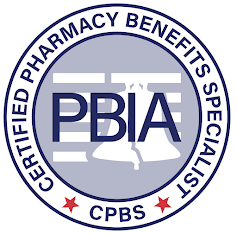Satisfaction With Pharmacy Benefits Managers Hits 9-Year Low and other notes from around the interweb:
- Survey: Satisfaction With Pharmacy Benefits Managers Hits 9-Year Low. Satisfaction with pharmacy benefit managers (PBMs) has plunged to its lowest level in nearly a decade, according to Pharmaceutical Strategies Group’s newly released 2023 Pharmacy Benefit Manager Customer Satisfaction Report. The survey, now in its 26th year, sampled 229 benefits leaders representing employers, health plans, health systems, and unions to present an unparalleled depth of insight into the landscape of customer satisfaction with the management of prescription drug programs. Respondents’ mean overall satisfaction with their PBMs is 7.6 on a 1-10 scale, representing a material drop from a height of 8.2 in 2021 and the lowest overall satisfaction since 2014. Rising drug trend, predominantly negative public perception, and targeted political rhetoric have contributed to the decline in satisfaction.
- Specialty drug cost trend projected to be nearly 15 percent. Specialty drug trend alone is projected to be nearly 15 percent, driven by higher utilization of new high-cost specialty drugs replacing lower-cost therapies. Diabetes, autoimmune disease, and psoriasis have been the top three disease indications for prescription drugs over the past few years. However, since the first quarter of 2021, anti-obesity medications have shown the greatest growth, climbing 114 percent. This is due to many factors, including the off-label, weight-loss use stemming from social media buzz and exponential market investments in anti-obesity drugs as well as the American Diabetes Association recommending GLP-1 medication to reduce health complications. GLP-1 drugs will account for more than half of all diabetes drug therapies claim costs by the end of this year.
- Playbook for Employers – Addressing PBM Misalignment. The guide, released by the National Alliance of Healthcare Purchaser Coalitions, identifies several key strategic recommendations that employers can adopt when looking to better navigate their relationship with PBMs. For one, the playbook recommends that employers find advisers that are genuinely putting in the work for them. Advisers should be independent and transparent, according to the guidebook, and contracts should be designed to ensure that PBMs act in the employer’s best interest. “As we uncover these increasingly apparent anomalies, I think we’ve got to challenge ourselves to do better and most importantly require that our advisers, our middlemen and our intermediaries do better on our behalf,” Mike Thompson, CEO of the alliance, told Fierce Healthcare.
- STAT News investigation takes deep dive into PBM broker conflicts of interest. Employers across the country — from big names like Boeing and UPS to local school systems — pay consulting firms to handle a straightforward task with their prescription drug coverage: Get the best deals possible, and make sure the industry’s middlemen, known as pharmacy benefit managers, aren’t ripping them off with unfair contracts. But a largely hidden flow of money between major consulting conglomerates and PBMs compromises that relationship, a STAT investigation shows. Some consulting firms often are getting paid more — a lot more — by the PBMs and health insurance carriers that they are supposed to scrutinize than by companies they are supposed to be looking out for.
